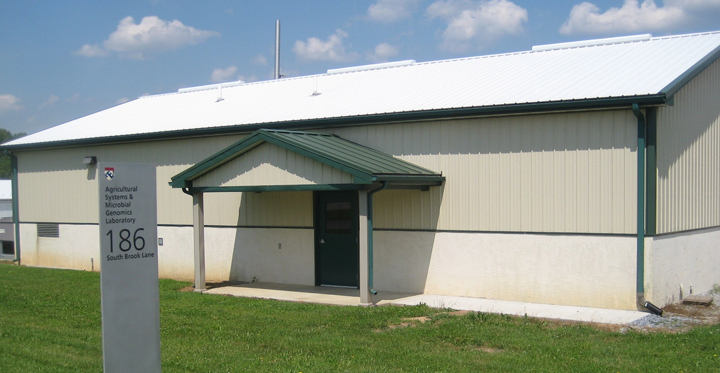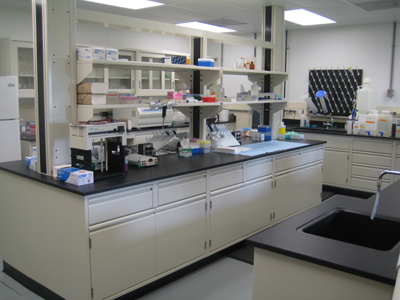
The Agricultural Systems and Microbial Genomics (ASMG) Laboratory was established to
support Dr. Dou and Dr. Pitta in their research endeavors
Dr. Pitta is the ruminant nutritionist and microbiologist at the Center for Animal Health and
Productivity (CAHP), New Bolton Center, University of Pennsylvania.

Research at the ASMG lab focuses primarily on the gut microbial composition of ruminants
utilizing advanced molecular methodologies. The alimentary tract of a ruminant is colonized by
millions of microbes living in a symbiotic relationship with the host. Therefore, knowledge of the
microbial composition of the entire gut can provide insights into improving the overall health and
productivity of the animal.
The advent of next generation sequencers has greatly enhanced our ability to explore
community microbial populations. The ASMG lab has the capabilities to isolate bacteria and
methanogens from the gastrointestinal contents of different ruminant species as well as apply
multi-omic approaches to better characterize and understand the functional potential of rumen
microbiota. The primary areas of focus include deciphering dietary-microbe, microbe-microbe
and host-microbe interactions that play essential roles in maintaining health and production
while also minimizing negative impacts on the environment. Research efforts at ASMG are to
understand the role of microbiota in ruminal methanogenesis and determine the impacts of
different inhibitors on enteric methane inhibition, application of precision technologies to
advance animal productivity and early life microbial interventions to improve health and welfare,
and productivity of dairy cattle. Please research projects for further details.
In addition, The ASMG group collaborates with other researchers and clinicians both within the
University of Pennsylvania as well as at other institutions. Research findings are disseminated
via publications and are presented at conferences. The ASMG group strives to educate and
train next generation students in application of microbial genomics to help address global issues
such as Food Insecurity, Climate Change, Sustainable Agricultural Systems, and Mitigation of
Antimicrobial Resistance. Opportunities for students from diverse backgrounds, ranging from
high school through postdoctoral are available at ASMG laboratory to further their careers in
microbial genomics and its applications
Read More About The ASMG Laboratory - Microbial Genomics